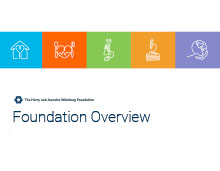The Weinberg Foundation offers a wide range of professional and staff development trainings. These opportunities include a yearly (pre-COVID) CPR training. Most of us appreciate the potentially life-saving knowledge and skills acquired through the training. However, it is also easy to minimize CPR certification as the equivalent of fire extinguishers and smoke detectors—we acknowledge that they are important, but we might also doubt (perhaps wishfully) that we will ever truly need them. Here at Weinberg, the value of the Foundation’s CPR training recently became dramatically apparent when one of our colleagues saved a life while on vacation with family. Please read below, in our colleague’s words:
“I just returned from vacation with my family – there were many memories that will stay with me for years. Ironically enough, the one that will stick out most was the most disturbing and unplanned part of our time away. As I’m sure happens for many of us, the last day of the trip turned out to be the day that we had planned to do everything we hadn’t found time to do. We were having breakfast by the swimming pool, and we were just finishing up and finalizing our overly-ambitious schedule, when someone yelled ‘Call 911!!’ – there were screams all around, and the cries for help continued. There were about a hundred people in the area, and the place was instantly filled with chaos. I got up and rushed toward the pool – and then followed the calls for help over by the hot tub.
There, a woman was holding a little boy in her arms. The boy, just two and a half years old, was limp and blue. The woman holding him was screaming “He is my son,” and “I am a nurse!” I asked her if we could lay the boy down and reached out my arms for him. Together, we moved him to the side of the hot tub. He was non-responsive. He had no pulse. So, I started administering CPR—the CPR that I learned through training at the Weinberg Foundation. Two fingers compressing on his chest. After about 60 seconds the little boy coughed up some liquid but was still unresponsive. Another 30-45-ish seconds of compressions with his mother now providing mouth to mouth, and he coughed up more through his nose and mouth. I could finally feel a pulse. It was weak, but it was there. At that point, others had joined me, and a few of us were trying to keep the boy awake and get more water out of his lungs. What seemed like an eternity later (but was really five minutes I was told), the EMTs arrived, provided oxygen, and took the little boy on a stretcher to the hospital.
As you can imagine, it was a very scary, chaotic situation. I cannot tell you the relief I felt when I’d heard that the little boy was released from the hospital and was back with his family, a day and a half later. I shared this story for two reasons. First, I am so grateful that I took our CPR training and actually remembered what to do. Second, and most important, I would like to use this opportunity to make an appeal to everyone reading this, if your organization does not already do so, PLEASE offer CPR training to your staff. As an individual, if you are able to receive CPR training—through your employer or otherwise—PLEASE DO IT. You just never know when someone will need help.”
Our colleague’s experience has underscored for all of us the truly life-saving importance of CPR training. May we all be prepared, and ready to respond, should the need arise.
